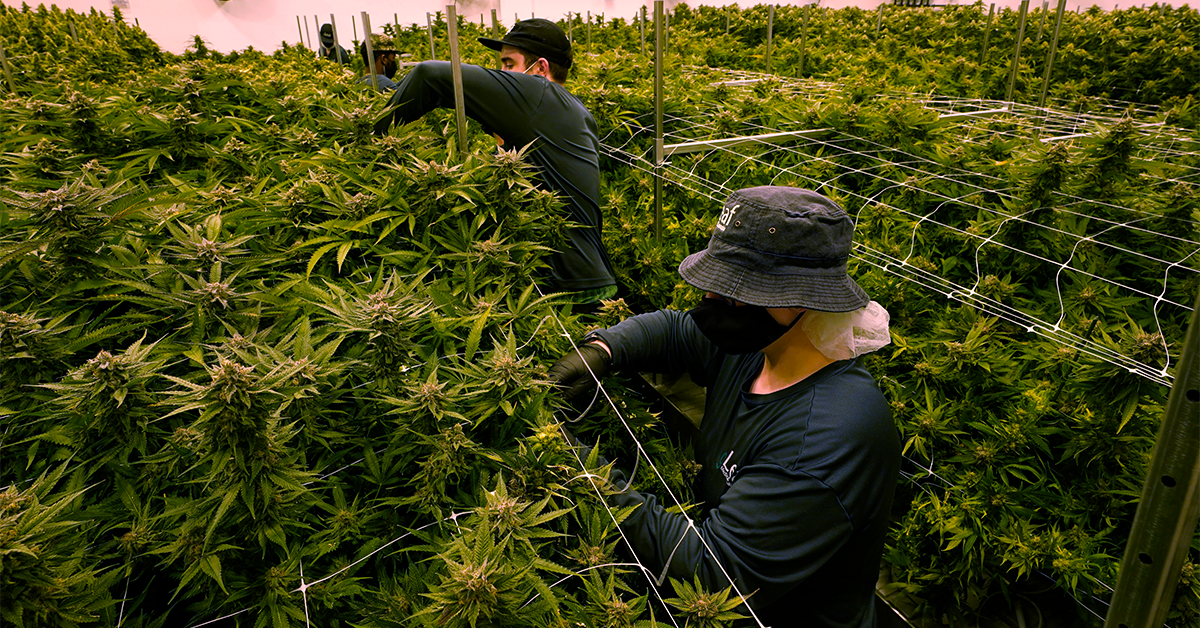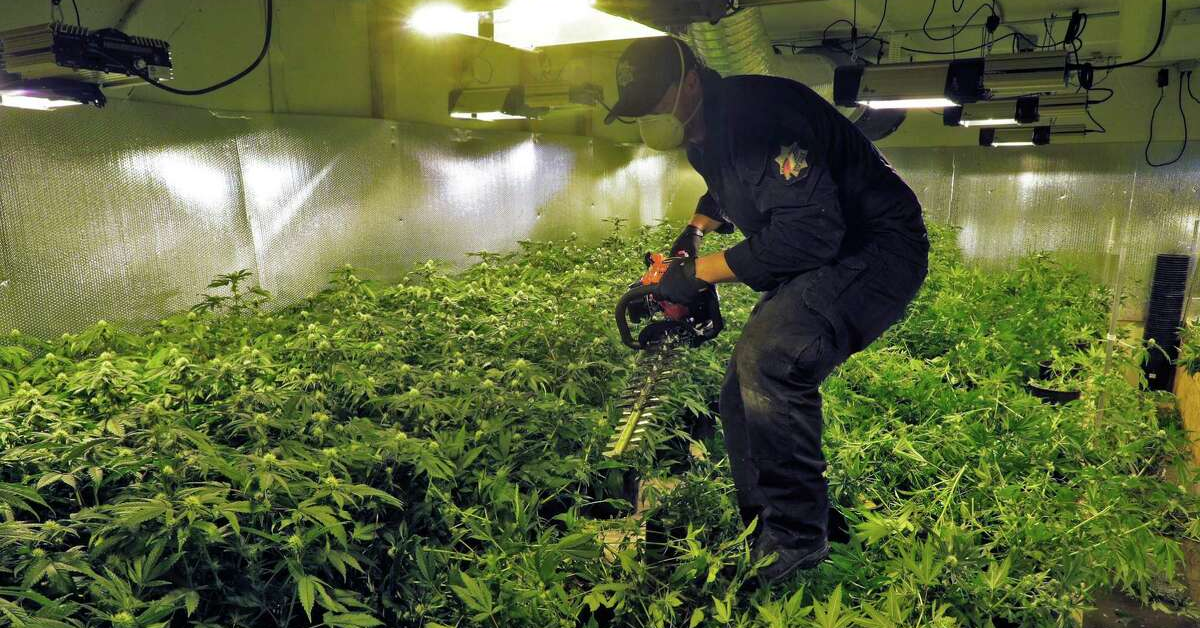HEF Finance Completes $7M Loan for Michigan Cannabis Dispensaries Acquisition

HEF Finance, a financial institution with a focus on various sectors, including cannabis, has brokered a $7 million loan for the acquisition of three cannabis dispensaries in Michigan. The transaction is notable for its size, especially given the challenges many cannabis businesses face in securing traditional bank financing.
Over the past years, HEF Finance has facilitated various loans within the cannabis sector, adapting financial solutions to the nuances of regulatory requirements.
Kirk Gill of HEF Finance, a division of Honor Enterprise Funding LLC, stated, "This loan underlines our capability in the sector. We're familiar with the financial landscape cannabis businesses operate within."
While the cannabis industry often encounters difficulties in procuring loans from mainstream banks, this transaction showcases HEF Finance's role in this specialized area of lending.
The acquisition comes at a time when Michigan's cannabis market is showing signs of growth. Such transactions have potential implications for business development, job creation, and the broader Michigan cannabis industry landscape.
HEF Finance operates in the specialty finance sector, catering to various industries including cannabis. They have experience in cannabis loan underwriting and are familiar with the challenges facing businesses in this industry in the U.S.
Protecting Your Michigan Cannabis Business from Potential Risks Posed by Former Employees

In the budding world of the Michigan marijuana industry, terminating an employment relationship is not just a matter of human resources; it's a strategic business decision fraught with potential risks. The fast-paced growth of the cannabis sector means that departing employees might:
- Launch a new cannabis enterprise, directly competing with your brand.
- Align with established marijuana competitors, transferring the exclusive knowledge, cultivation techniques, and potentially sensitive trade secrets they acquired during their time with you.
- Directly approach and woo your loyal cannabis clientele, affecting your market share.
Given Michigan's strategic position in the burgeoning national cannabis market, businesses can employ legal safeguards to manage these risks. Depending on Michigan's evolving cannabis regulations and broader employment laws, marijuana businesses may consider entering into non-compete, non-solicitation, and non-disclosure agreements with their staff. Yet, it's vital to tread carefully. These agreements often undergo stringent scrutiny under state law, especially when they may impede an individual's right to participate freely in the lucrative marijuana market.
However, the stakes are arguably higher in the cannabis sector than in many other industries. The Michigan marijuana market's intellectual property is a treasure trove of innovation, from unique cannabis strains to specialized extraction methods. Imagine an employee leaving a Michigan-based cannabis enterprise, relocating to California, and initiating a mirror-image marijuana venture—leveraging the same brand names, logos, and marketing techniques. Without preemptive measures taken in other states, a Michigan cannabis brand could find its hands tied, unable to prevent such brand replication.
This underscores the essential nature of robust employee agreements in the marijuana business. While the national landscape doesn't yet fully embrace cannabis, including limitations on federal trademark registrations, Michigan cannabis companies can utilize employee agreements as strategic tools. By doing so, they can ensure their intellectual property rights, brand identity, and market position remain unassailable, both within Michigan and beyond its borders.
Addressing Financial Hurdles for Michigan's Cannabis Companies: Looking Beyond Bankruptcy

For many in Michigan and across the U.S., the challenges faced by the cannabis industry are well-known. Despite being an emerging market, the industry confronts numerous federal hurdles including stringent tax rules, limited banking options, challenges accessing capital markets, varied intellectual property rights, and restrictions on interstate trade. Michiganders closely following the industry are well-versed with these hurdles that hinder the growth of our state's promising cannabis sector.
Recently, a new obstacle has emerged in mature cannabis markets, including Michigan: the lack of federal bankruptcy protections for cannabis ventures. This poses significant challenges for these businesses and their stakeholders, particularly during economic downturns.
Yet, it's not a completely bleak scenario. Although federal bankruptcy protections might not be accessible, Michigan's cannabis businesses have alternative contractual and state law mechanisms to counteract insolvency and financial distress. It's vital for Michiganders to stay informed and back our local businesses as they navigate this intricate path, ensuring the sustained growth of our state's cannabis industry.
Lume Continues Its Michigan Expansion with New Traverse City Outlet

Recently, Lume added a new store to its growing roster, situated at 401 W. Front Street, Traverse City. This establishment, repurposed from a former office building, marks Lume's seventh branch in northwestern Michigan. As of now, Traverse City is home to 12 adult-use marijuana shops, with Lume's recent opening. Additionally, city officials have confirmed that four other potential outlets are in line for state licensing. Once approved, this will take the number of adult-use shops in the city to 16.
Lume operates as a cannabis dispensary in Traverse City, MI, offering a range of cannabis flower types and other marijuana-related products. Their Traverse City dispensary provides an environment where customers can explore different product offerings, aided by the store's staff. Lume's inventory includes various cannabis products such as indica, sativa, and hybrid THC products, along with their Lume CBD line. The store also carries cannabis accessories and Lume-branded apparel. For those who prefer online shopping, Lume offers an online store, with options for home delivery or in-store pickup.
A distinguishing feature of Lume's product line is the inclusion of both Lume Cultivated and Lume Curated products. The Lume Cultivated range comprises products developed from their proprietary cannabis strains, which are grown and packaged internally. This line presents a selection that includes cannabis flower, pre-rolls, and edibles, available exclusively at Lume stores in Michigan. With an in-house approach to cultivation and packaging, Lume ensures that their products meet specific internal benchmarks.
Before Lume's establishment, the founders had a background of interest in recreational marijuana. Their business model includes physical retail outlets, a cultivation segment, and a digital platform for online purchasing and product delivery.
Lume Cannabis Co. - Traverse City, MI
- Website: https://www.lume.com
- Address: 401 West Front Street, Traverse City, MI 49684
- Phone: 231-221-0048
- Hours of Operation:
- Monday to Saturday: 9am–9pm
- Sunday: 10am–8pm
A Closer Look at Regulatory Delays in Michigan’s Cannabis Industry

Michigan's regulatory body for cannabis, the Michigan Cannabis Regulatory Agency (CRA), is under the spotlight for alleged tardiness in addressing violations within the marijuana business sector. A comprehensive state audit has drawn attention to this delay, igniting concerns over the potential risks posed to consumers.
Audit Findings
The Office of the Auditor General, in its review, found that the CRA can take up to two years to implement disciplinary actions against defaulters. This delay is concerning, as timely interventions by the CRA can help mitigate potential risks to cannabis consumers in Michigan and prevent future violations by licensees.
Delving into the details, the audit scrutinized the CRA's approach towards 678 complaints from April 1st, 2021, to September 30th, 2022. The findings were revealing. On average, it took the agency 196 days to discipline businesses cited in 123 of these complaints. The most prolonged disciplinary process extended up to 757 days. The nature of these complaints spanned various segments of the cannabis industry - from production and sales to operations and security.
While the CRA has made some improvements to the complaint process within its jurisdiction and has claimed to prioritize consumer safety-related complaints, the report indicates there's much left to be desired.
In-depth Analysis of Official Findings
The CRA's mandate, as outlined by Sections 333.27303 and 333.27957 of the Michigan Compiled Laws, is clear. It's responsible for taking corrective actions against any infractions and imposing requisite fines or sanctions against violators of marijuana laws.
The standard procedure post any violation report is systematic. After an internal investigation, the CRA issues a formal complaint to the concerned business, detailing the violations and the impending disciplinary actions. At this stage, businesses have the right to contest the complaint. If they choose this route, other state agencies get involved, and the CRA loses control over scheduling these hearings. Post these hearings, a final order specifying the disciplinary action by the CRA is issued.
While the process seems straightforward, the figures tell a different story. Of the 678 formal complaints, only 14% of the completed and 7% of the ongoing complaints seemed to involve a contested hearing. Despite this, the delay in action remains significant. The CRA cited staffing shortages as a significant hindrance in managing the inflow of disciplinary cases during the audit period. To address this, post-audit, the CRA has set metrics to expedite the disciplinary process.
Furthermore, another area of concern is the timely inspections of medical and adult-use marijuana facilities. CRA's inspections are designed to ensure the safe and compliant operations of these facilities, from pre-licensure inspections to post-licensure and periodic checks. These checks help affirm the correct operations of facilities, ensuring the right safety and operational standards, and preventing sales to those under 21. However, between April 1st, 2021, and September 30th, 2022, there were significant delays in these inspections.
Lastly, an urgent need was identified for the CRA and the Department of Licensing and Regulatory Affairs (LARA) to improve security and access controls over their systems, Accela and Metrc. This is crucial to prevent unauthorized data access and ensure marijuana facility and patient data protection.
Conclusion
The state audit has thrown a spotlight on significant areas needing improvement within Michigan's cannabis regulatory framework. While the CRA has recognized some of these issues and is working towards addressing them, it's clear that more robust and timely interventions are necessary to ensure the safety and interests of Michigan's cannabis consumers.
Michigan Medical Marijuana Certifications Raise Concerns

Between April 1st, 2021, and September 29th, 2022, 18 Michigan doctors issued nearly 62% of the state's 134,709 medical marijuana patient certifications. The Cannabis Regulatory Agency (CRA) raised concerns over this concentration, especially since two doctors alone certified over 23,000 patients, averaging more than 30 patients a day. These certifications, with fees starting around $100, potentially generated revenues exceeding $13.5 million.
In contrast, a 2018 Physicians Foundation survey revealed most doctors felt overworked after seeing 11-20 patients daily. Given these statistics, the audit questioned the legality of certain certifications. Although the vast number of certifications by a few doctors alarmed CRA officials, they stated that privacy laws prevent them from reporting potential unethical behavior.
The CRA ensures that every doctor's credentials are verified with the Michigan's Bureau of Professional Licensing. Most rejections are due to inadequate licensing information. However, the names of the physicians in question have been kept confidential.
Notably, a doctor previously faced a two-year license suspension in 2018 for certifying almost 22,000 medical marijuana patients within a year.
Certified patients can purchase stronger cannabis products and evade a 10% tax on recreational marijuana. Due to these benefits, some applicants might approach doctors who provide certifications without a proper patient-doctor relationship. Michigan law mandates a comprehensive evaluation for such certifications, including a review of medical history and a proper follow-up.
With telemedicine on the rise, many get their medical marijuana card certifications online. Fees usually start at $100. After a brief virtual consultation, some users receive their certification on the same day. The state charges an additional $40 for processing, and certifications are valid for two years.
The Michigan Medical Marijuana Act, established in 2008, allows certified patients to purchase and possess specific marijuana quantities. The CRA manages the program and also verifies caregivers who can grow and produce cannabis products for up to five patients and themselves.

However, both the number of caregivers and patients have seen a decline. The number of registered patients decreased by an average of 5,640 monthly, and caregivers by 875 monthly over the last year.

Moreover, fewer retailers now sell medical-designated cannabis. Initially, the CRA required retailers to have both recreational and medical licenses. Now, many are forgoing the medical license. Currently, 296 stores are licensed for medical marijuana, whereas 704 are licensed for recreational sales.


 Helpful Links
Helpful Links